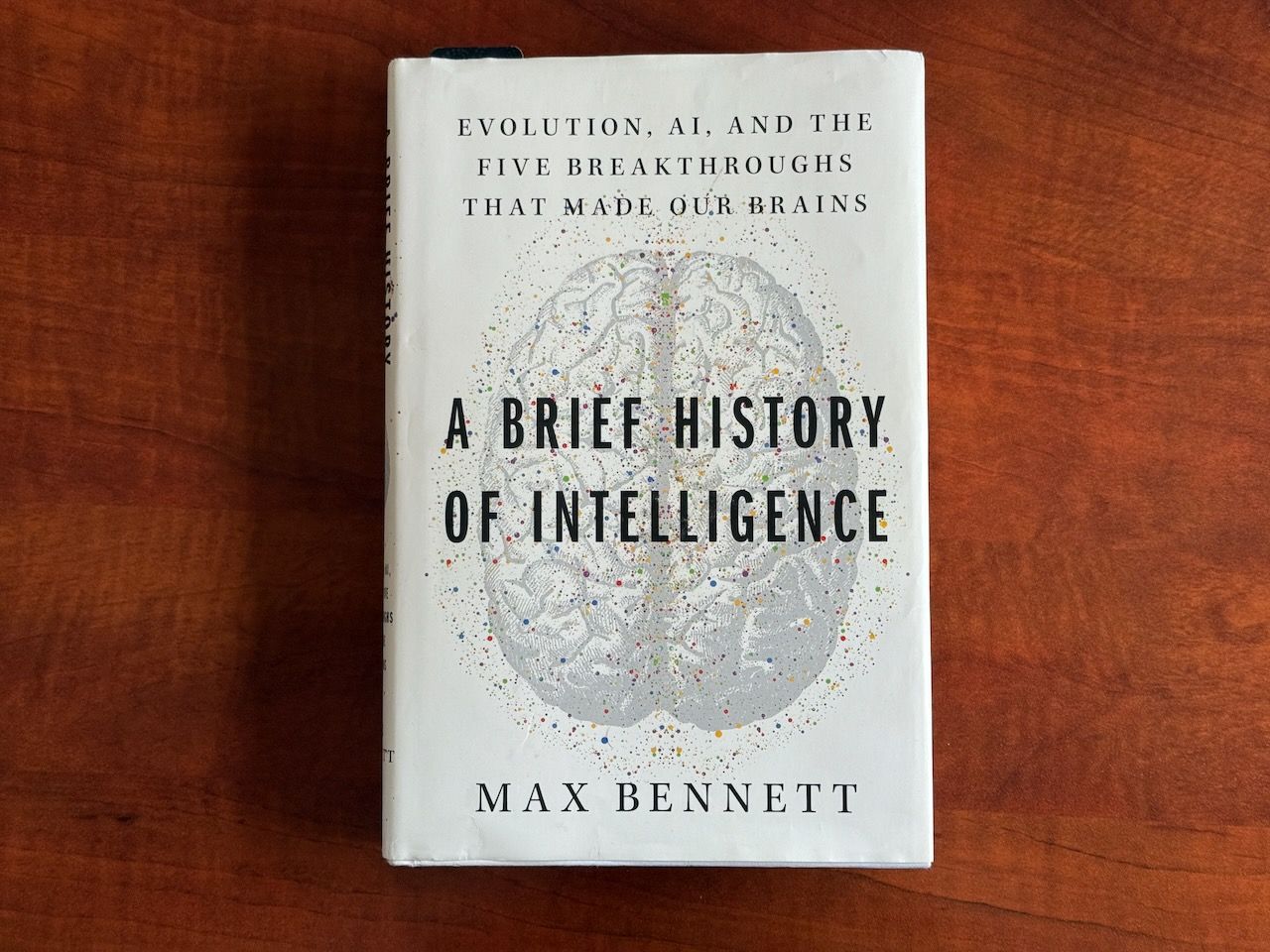- Posted on
- 7/8/2025
- Updated on
- 7/9/2025
The Very, Very, Very Long Story of Intelligence

A Brief History of Intelligence by Max Bennett
You can’t really know where you are going until you know where you have been.
― Maya Angelou
In today’s world of Large Language Models, AI agents, AI labs, and a flood of arXiv papers arriving every day, it all can seem quite overwhelming. How can one get one’s bearing in such rapid change? How can we prepare ourselves for what is coming next? Well, I actually don’t have that perfectly figured out - I’m not sure anyone does. Though, I do strongly believe that if you want to predict where something is going, look to its roots. Instead of focusing on the future, try looking backwards for a while.
Artificial intelligence did not come out of nowhere. Its roots are decades old, grown bit by bit, by people trying to figure out how to get computers to do what humans and other animals do with their brains. Being interested in where artificial intelligence is going, it can be worthwhile looking back at these efforts. But, what if we looked even further back? Where in the world did intelligence come from in the first place? This is the question Max Bennett asks in his excellent book A Brief History of Intelligence.
Bennett is an AI entrepreneur, who has founded more than one successful AI company. As someone working with AI, he naturally became interested in the roots. After extensive readings, he found that he wanted a book that would summarize how intelligence evolved. Not finding it, he set out to write it himself.
In this book, Bennett takes on the herculean task of zooming all the way back to the very origins of life, using the current scientific consensus. From there, he maps out, step-by-step how it is believed that matter gave rise to life, and life gave rise to intelligence, through the forces of evolution.
He breaks down this history of intelligence into 5 key breakthroughs that occurred over the last billion years:
- 600 Million Years Ago: Steering. Not all animals have brains, but some need them. Specifically, those that need to steer their movement. These are the “bilaterians”, a category to which we belong. The earliest brains were probably dedicated to steering toward food, and away from danger. Yes, your great-n-grandparents were worms.
- 500 Million Years Ago: Reinforcing. The Cambrian Explosion unleashed tremendous evolutionary forces, which gave birth to a dizzying variety of animals. It also introduced new brain structures such as the basal ganglia, the cortex, the hippocampus, and other structures, which enabled animals to learn in more powerful ways using reinforcement learning.
- 200 Million Years Ago: Simulating. The rise of the mammal and the neocortex. With the neocortex came the gift of simulating. Simulation allowed for the creation of a world model in the brains of early mammals.
- 15 Million Years Ago: Mentalizing. The rise of primates, and the theory of mind. The ability to not only simulate the world, but to simulate the minds of others and yourself allows for the transfer of knowledge, predicting the actions of others, and long term planning.
- 100 Thousand Years Ago: Speaking. Early humans developed language, which accelerated knowledge transfer and learning, and also gave rise to both altruism and cruelty.
And of course, we are now on the precipice of a 6th breakthrough - what we call Artificial Intelligence. Most of us have already experienced this first hand in some way, even if only through a casual use of ChatGPT. After reading this book, it becomes a little easier to see where AI is currently falling short. Memory, and an ability to learn come to mind. For example, current LLM designs are not usually capable of learning anything after their initial training - a huge difference between the way animals and chatbots think.
I believe that it is important to understand that intelligence is a physical phenomenon in the universe that has evolved over time. The advent of intelligence on microchips is just one more step in this evolution. Though, it is hard to overstate the impact this is going to have. In my mind, it is comparable to the transition from single-cell organisms to multicellular animals. The future is hard to predict. But, zooming out as far as possible on the arc of evolution gives us the best perch from which to view the zaniness of the moment we live in.
Max Bennet’s book is titled “A Brief History of Intelligence”, but the actual history is anything but brief. It’s not really possible to cover everything in a single book, or even in a single lifetime. But Mr. Bennett does leave the reader with a sense of continuity. It is at the very least a plausible outline for the extremely large story. Squeezing a billion years of evolution into 400 pages is quite the feat.
I am not a neuroscientist, or evolutionary biologist, so I cannot confidently critique this survey of 600 million years of brain evolution. Therefore, I trust Bennett’s analysis until I am presented with authoritative counter-arguments. I do know that Bennett consulted with a large number of well known scientists, so I have good reason to have faith in his work.
To anyone interested in where things are going, I highly recommend this book. I am in the middle of my second reading.